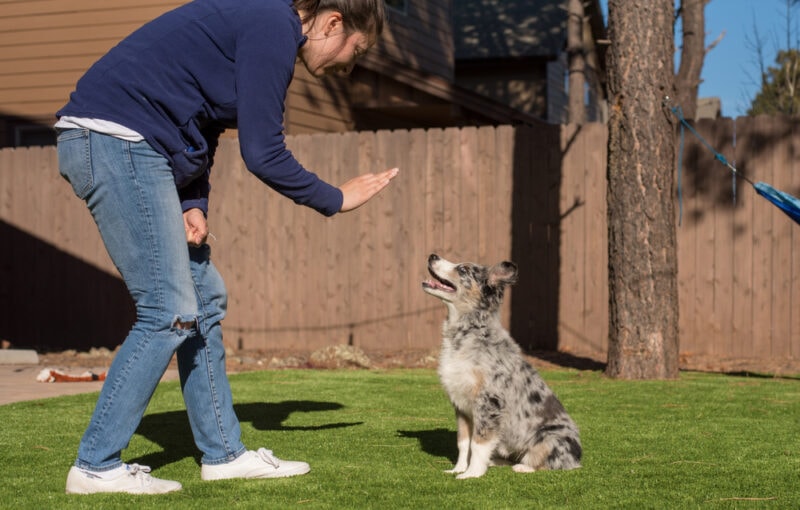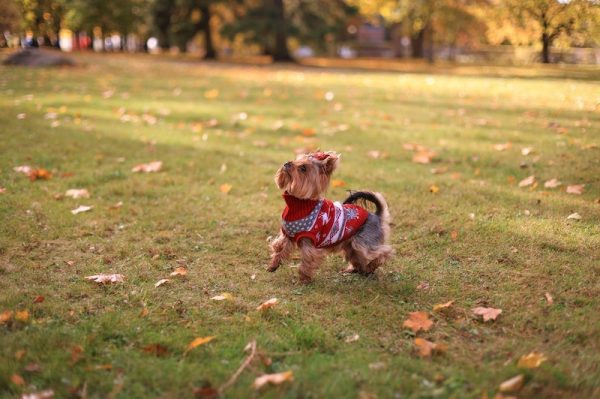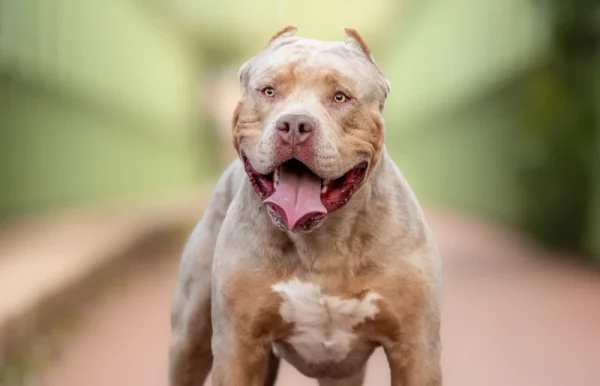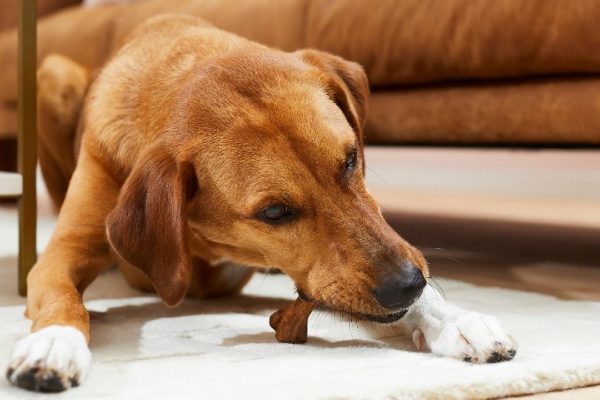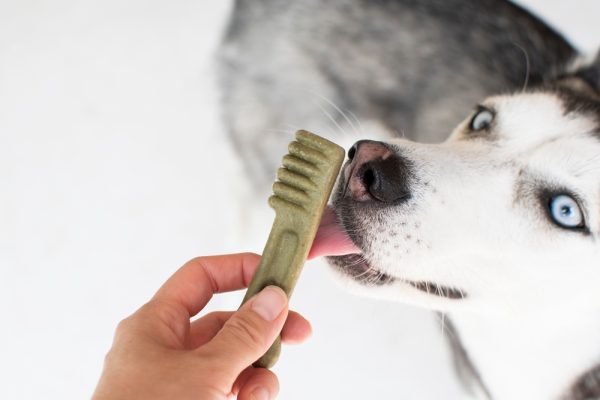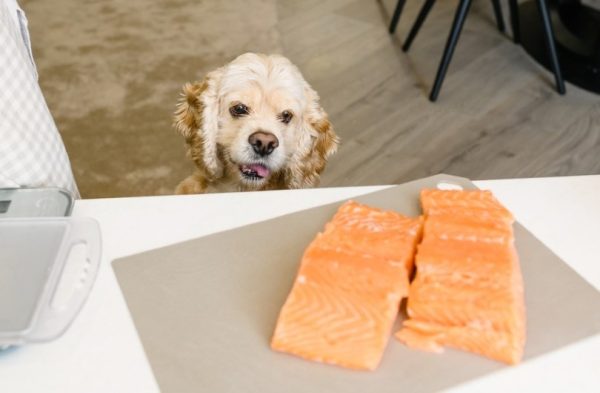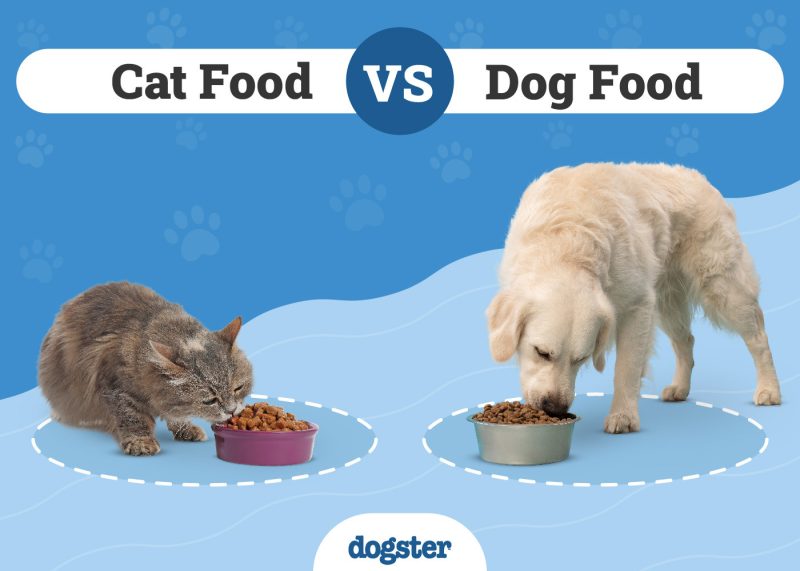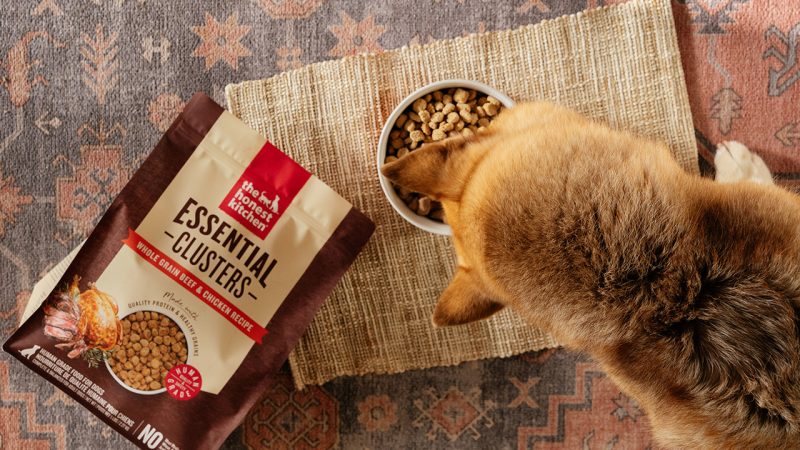Australian Shepherd puppies are cuddly and adorable, but they also require a great deal of work. Welcoming them into your home requires introducing them to existing pets, roommates, or children, along with teaching them how to behave. Potty training is one of the most essential lessons that your new Aussie needs to learn to grow into a well-behaved companion.
It can take several months for your Australian Shepherd to fully master potty training, but it’s well worth the effort. Proper training will help build the bond between you and keep your home free of puppy messes. If you’re a new Australian Shepherd owner, here are six tips on how to potty train your puppy.

Before You Start
Gathering the right supplies before you start will ensure that you have them on hand when you need them and help you get into the right mindset for potty training your puppy.
Enzyme Cleaner and Paper Towels
While you’re potty training your dog, a few accidents are inevitable. Even as your Australian Shepherd gets more familiar with what you’re asking, they’re likely to mess up now and then until they master the training.
Keeping cleaning supplies on hand will help. Dogs will often return to places where they previously used the bathroom to mark their territory. Cleaning up the mess as soon as possible will help prevent odors and stains from developing. Your puppy will also be less likely to revisit the spot to use the potty again.
Enzyme cleaners are one of the best options for cleaning pet-related messes like urine. It’ll break down organic matter and remove stains and odors before they become a problem.
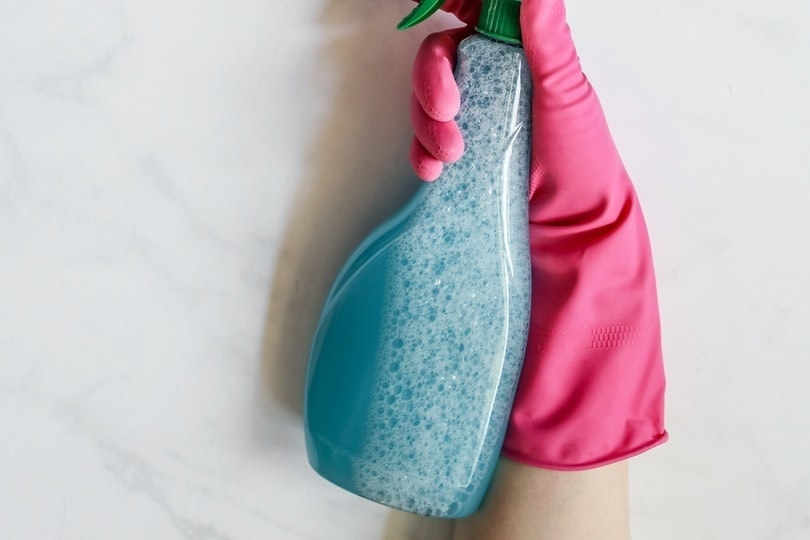
Treats
When you first bring your puppy home, you should make sure you have training treats. No matter how old your Australian Shepherd is, training them starts from day one.1 This helps prevent them from developing bad habits that you’ll need to correct later and will help you develop a routine for taking care of your dog.
Treats are the easiest way to show your dog that they did something right. As your puppy gets used to the trick or command that they’re learning—such as going to the bathroom outside—you can wean them off the treats. To start with, though, a tasty treat can make training easier.

The 6 Tips on How to Potty Train an Australian Shepherd
1. Establish a Bathroom Routine
First, establishing a consistent bathroom routine will help both you and your puppy. Not only will it ensure that you make time to take your puppy outside, but it’ll also help teach them control as they wait for their next potty break.
You’ll need to take your puppy outside or direct them to a puppy pad frequently throughout the day. How often you do so depends on your puppy. The younger they are, the more potty breaks they’ll need. For young dogs, take them outside at least once an hour and/or immediately after a meal, before bed, and after you wake up.
It might seem excessive, but the more your puppy does their business outside instead of indoors, the more successful your training will be.
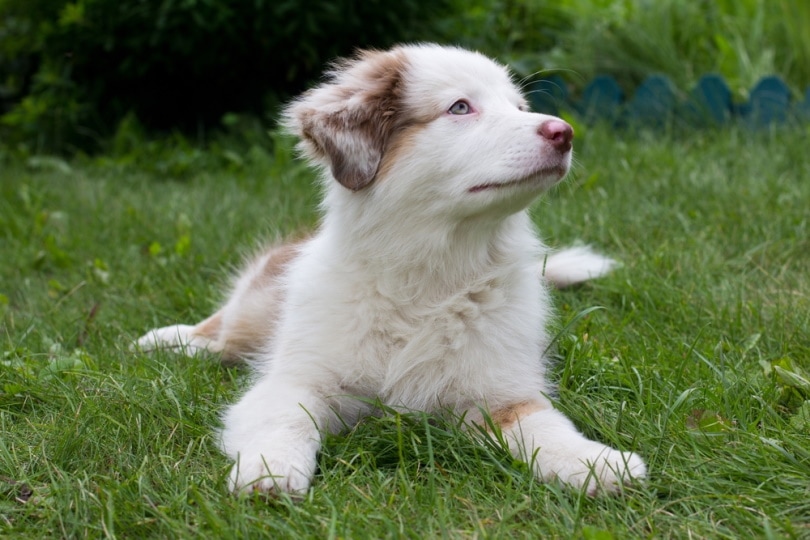
2. Do Crate Training
An optional step to potty training is using a crate. This can help at night or if you work away from home. The idea behind crate training is that your puppy learns to see the crate as their safe haven. It’s the spot where they sleep or go whenever they’re feeling uncertain.
Contrary to popular belief, a crate is not intended to be a punishment. Instead, it’s more like your dog’s bedroom.
Even when they’re young, dogs will instinctively want to avoid going to the bathroom where they sleep. This is where crate training comes in handy. If your puppy sleeps in the crate at night, they’ll be more likely to wake you up by whining to be let out if they need to use the bathroom. You’ll be able to get up, take them outside or to their puppy pad, and praise them when they get it right.
3. Reward Good Habits
When it comes to training dogs, positive reinforcement is one of the key things to remember. Australian Shepherds are highly intelligent and quick to understand what you’re asking. When paired with the right rewards, like treats or their favorite toys, their training sessions will be even more successful.
Every time your puppy uses the bathroom outside, praise them. Regardless of whether they pee, poop, or do both, you need to reward them whenever they go where you want them to. You can do this by giving them a treat, a scratch behind the ears, or a fun game. Positive reinforcement helps encourage your dog to repeat the behavior so they get the reward afterward.
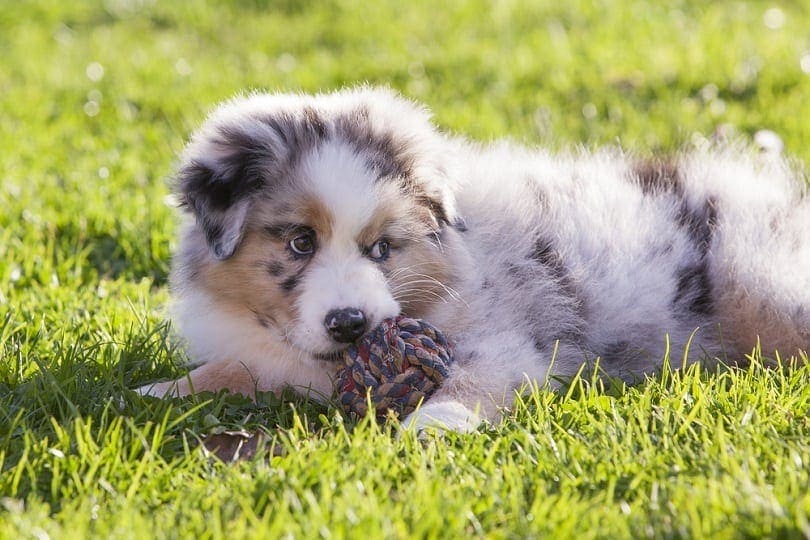
4. Be Consistent
Good habits are built with repetition. The Australian Shepherd is one of the most intelligent dog breeds around, but they can still get confused if you constantly change the goalposts. When you first start training, you need to keep your bathroom routine as consistent as possible, even if it means taking your puppy to the same corner of the garden every time.
Consistency is important with puppy pads too. Create a designated potty area for your dog, and don’t move the pad around the house. The more consistent you are about your training—whether it’s potty training or obedience—the more your Aussie will excel.
5. Don’t Scold for Mistakes
One of the mistakes that many new pet owners make is yelling whenever their puppy goes to the bathroom in the wrong spot. Scaring them or rubbing your dog’s nose in the mess that they made isn’t conducive to helping them understand what they did wrong. In fact, it’s more likely to damage the trust that your new puppy is developing in you.
Instead of scolding your puppy when they make a mistake, calmly interrupt them, and immediately take them outside. Once they finish their business outside, remember to praise them.
Accidents happen and don’t mean your puppy is misbehaving or taking several steps back when you thought that they were mastering their potty training. Maybe you waited too long for a potty break, or perhaps your puppy drank more than usual. Either way, stay calm, and clean up the mess once you’ve corrected the behavior and your puppy has gone to the bathroom in the right place.
No matter how hard you try, pets will always leave you cleaning up smells, stains, vomit, hair, and everything in between. With the Hepper Advanced Bio-Enzyme Pet Stain & Odor Eliminator Spray, you can advance your clean-up routine!
- ADVANCED ENZYMATIC CLEANER - Penetrates the most stubborn smells and stains at the deepest molecular...
- FOR ANY MESS, ON ANY SURFACE - This pet odor eliminator cleans your carpets, floors, furniture,...
- FRESH, NATURAL ODOR - Our unique formulation doesn't rely on dangerous or unpleasant chemical...
It permanently removes the very worst pet stains and smells (and truly makes clean-up a breeze). Click here to learn more, order a bottle, and freshen up your home today.
At Dogster, we’ve admired Hepper for many years, and decided to take a controlling ownership interest so that we could benefit from the outstanding products of this cool pet company!
6. Be Patient
More than anything else, patience is key. Your Australian Shepherd puppy will make mistakes. Sometimes, they might have a sudden string of potty messes inside your house after a long streak of perfect potty habits. While it feels like you’re taking a step back when you had an eye on the finish line, it’s a natural part of your puppy’s potty training.
Avoid scolding your puppy when they make a mistake. Stay calm and patient. Part of potty training includes building trust between you and your puppy. The more patient with them you are, the happier they’ll be.
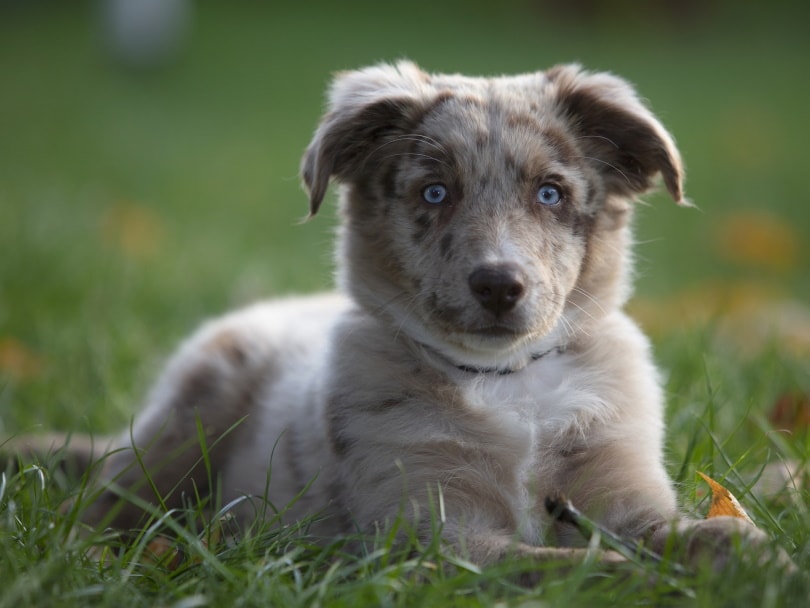

Are Australian Shepherds Easy to Potty Train?
You should start potty training as soon as you bring your new family member home, but you should also consider their limitations. Australian Shepherds are keen learners, but they’re not always the quickest to pick up new habits.
One Aussie might take a week or two to understand where their bathroom is, while another might take months to understand. Their age can hinder them too. The younger your puppy is when you start potty training, the less control they’ll have over their bladder. Younger dogs will need to take much more frequent potty breaks.
Your training techniques play a part in how fast your Aussie learns. Consistency, patience, and positive reinforcement are all necessary whenever you’re training your dog, no matter how intelligent the breed is known to be. The more stable your training is, the more likely your dog will understand and have fun.
 Conclusion
Conclusion
More than anything else, don’t expect your puppy to understand potty training right from the start. Accidents will happen; it’s an inevitable part of being a dog owner. Stay calm, and be positive while you’re potty training your Australian Shepherd puppy. You’ll both have more fun and your Aussie will pick up good potty behavior in no time.
- Related Read: How to Train an Australian Shepherd
Featured Image Credit: Suzanna Bunch, Shutterstock

